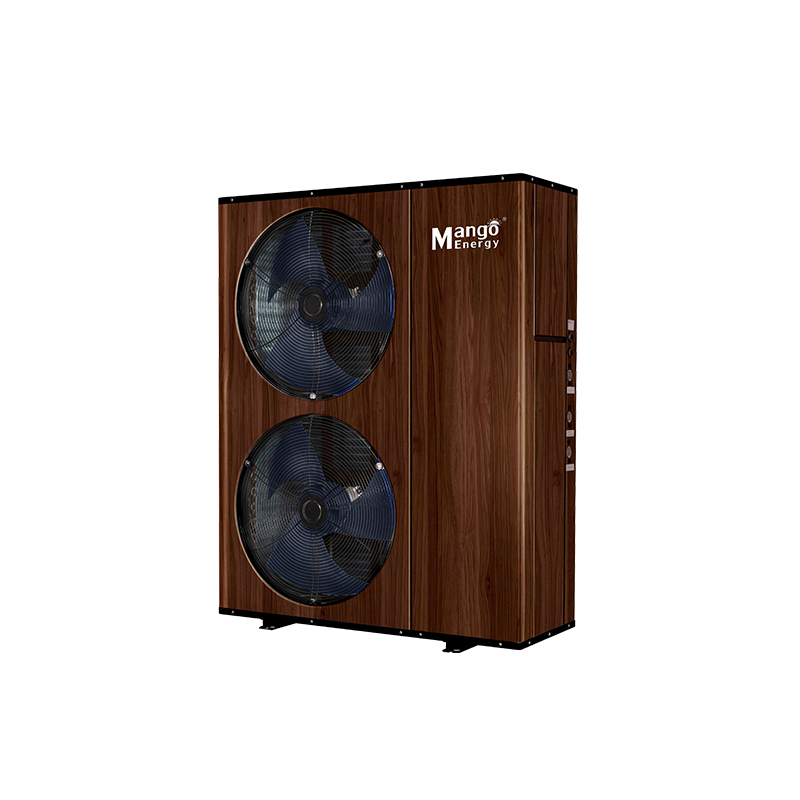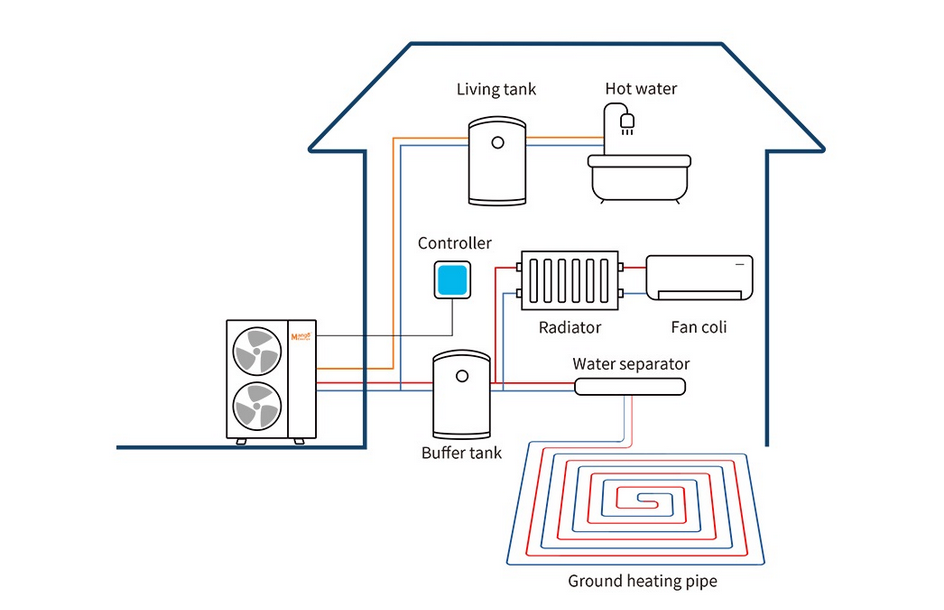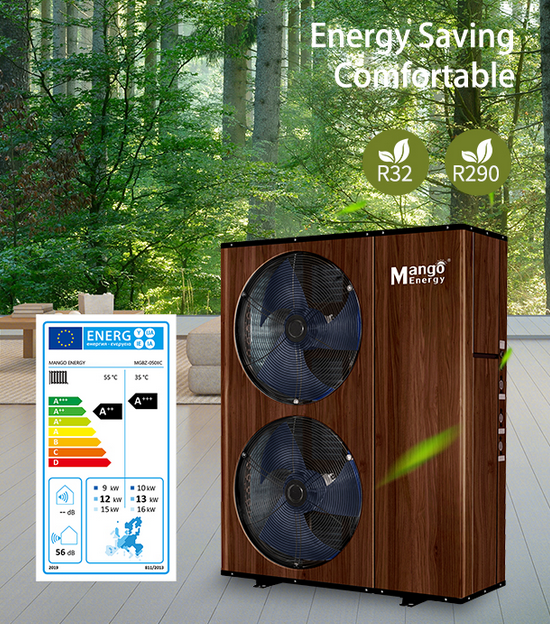
Air source heat pumps equipment and air conditioners, as common heating and cooling equipment in modern homes, each play an important role. Although they all involve the transfer and regulation of heat to a certain extent, there are significant differences in many aspects. This article will discuss in detail the differences between air source heat pumps and air conditioners in terms of principles, functions, applications and efficiency.

1. Working principle and functional differences
Air source heat pump: The working principle of ground source heat pump is based on the reverse Carnot cycle. It absorbs heat from outdoor air, transfers heat to indoor through compression and condensation to achieve heating. At the same time, in summer, by switching the working mode, the indoor heat can be discharged to the outside to achieve the cooling effect. Therefore, air source heat pump has both heating and cooling functions, and is a heating and cooling device that can be used all year round.
Air conditioner: The working principle of air conditioner is to absorb and discharge heat through the circulation of refrigerant between indoor and outdoor units. In cooling mode, the air conditioner absorbs indoor heat through the indoor unit and discharges it to the outside through the outdoor unit; in heating mode, it absorbs outdoor heat through the outdoor unit and releases it to the indoor through the indoor unit. However, it should be noted that the heating capacity of air conditioner will be greatly affected in low temperature environment, so the effect of using it in cold northern regions may not be good.

2. Application scenarios and applicability
Air source heat pump: Due to its excellent low-temperature heating performance, air source heat pump has a wide range of application prospects in the cold northern regions. Whether it is home heating, cooling, or industrial production and commercial use, it can play a unique advantage. In addition, since it does not need to burn fossil fuels during operation and does not produce pollutants such as exhaust gas and waste residue, it is also an environmentally friendly and energy-saving heating and cooling equipment.
Air conditioning: Air conditioning is more suitable for the warm and humid climate environment in the south. In terms of cooling, air conditioning has higher efficiency and comfort; but in terms of heating, due to the limitation of ambient temperature, its use effect in the cold northern regions may not be satisfactory.

3. Efficiency and energy consumption
Air source heat pump: Air source heat pumps usually have a high energy efficiency ratio and can make full use of the heat in the outdoor air to achieve efficient energy transfer. At the same time, since there is no need to burn fossil fuels during its operation, it is also highly energy-saving.
Air conditioning: The energy efficiency ratio of air conditioning is affected by many factors, such as the type of refrigerant, the temperature difference between indoor and outdoor, etc. In cooling mode, the energy efficiency ratio of air conditioners is usually higher; but in heating mode, especially in low temperature environments, its energy efficiency ratio will be significantly reduced. In addition, the operation of air conditioners also requires a certain amount of electricity, so the energy consumption is relatively high.
As a shining pearl in the field of new energy, air source heat pumps lead the trend of green, low-carbon and sustainable energy development. Compared with traditional technologies, the biggest feature of this technology is its high efficiency, environmental protection, and energy saving characteristics, which makes it stand out among many new energy technologies and become an important force in promoting energy transformation. There are significant differences between air source heat pumps and air conditioners in terms of principles, functions, applications and efficiency. When choosing heating and cooling equipment, comprehensive considerations should be made based on actual conditions and needs.


